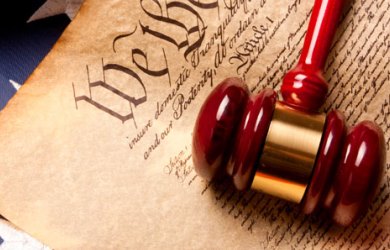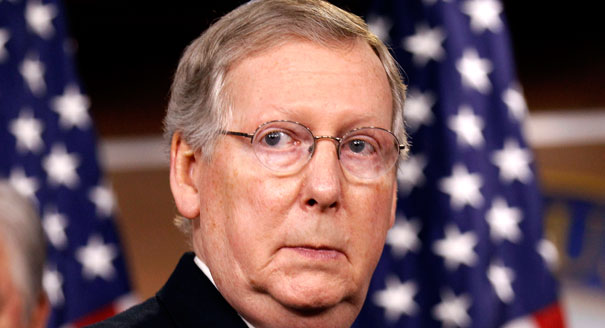Writing on the National Review’s “Bench Memos” blog, Ed Whelan of the Ethics and Public Policy Center set out to rebut various statements made by Senate Judiciary Chairman Patrick Leahy at a recent confirmation hearing.
Well, two can play that game.
Whelan’s first point:
1. Leahy states that all five of the district-judge nominees at the hearing “were among those returned to the President without Senate action at the end of last Congress when Republican Senators objected to proceeding with certain of the President’s judicial nominees in September and December last year.” This statement is clearly designed to give the trusting listener the impression that Republican senators were responsible for the fact that these nominees weren’t confirmed last year. But no Republican senators objected to any of these nominees. It was Democrats who decided to hold these nominees as hostages.
What Whelan doesn’t bother to mention is that the “Democrats who decided to hold these nominees as hostages” did so in retaliation for Sen. Sam Brownback’s petty hold on the nomination of Janet Neff solely because she attended a lesbian commitment ceremony back in 2002. As the New York Times explained:
Judge Neff’s nomination was included in a package of more than a dozen nominees whose confirmation had been agreed upon by both Democrats and Republicans. Mr. Brownback’s objections held up the whole roster of nominees.
Which plays into Whelan’s second point:
2. Leahy states: “With the five confirmations last week we have confirmed more of President Bush’s nominations in the 18 months I have served as Judiciary Committee Chairman than in the more than two years when Senator Hatch chaired the Committee with a Republican Senate majority or during the last Congress with a Republican Senate majority.” This comparison obscures the critical fact that Democrats, including Leahy, resorted to unprecedented measures of obstruction against judicial nominations in the last two Congresses. In other words, Leahy and his fellow Democrats, not the preceding Republican chairmen, are largely responsible for (and I’m sure claim credit with their supporters for) the low number of confirmations over the past four years.
In the 108th and 109th Congresses, the Republican-controlled Senate managed to confirm 104 and 52 of Bush’s nominees, respectively. In the 104th and 105th Congresses, when Republicans controlled the Senate under President Clinton, they managed to confirm 75 and 101 nominees, respectively.
As noted above, Brownback’s hold on Neff ended up holding up “more than a dozen nominees whose confirmation had been agreed upon.” The 156 nominees the Republicans confirmed during the 108th and 109th would have included more than a dozen more if Brownback hadn’t placed a hold on Neff, and that would have given President Bush approximately 170 confirmations during that time – pretty darn close to the 176 President Clinton got during the same time in his presidency.
So Whelan shouldn’t be blaming Democrats about the “the low number of confirmations over the past four years” since it would have been nearly the same as it had been under Clinton had Brownback allowed the dozen-plus nominees to go forward as had been agreed.
As for Whelan’s third point, it pretty much speaks for itself:
3. Leahy complains that President Bush “has nominated only 18 African-American judges to the federal bench, compared to 53 African-American judges appointed by President Clinton in his first six years in office.” From the numbers I have handy, it would appear that President Bush’s 18 black nominees account for slightly more than 5% of his total judicial nominees. Blacks account for about 4% of lawyers. Moreover, only about one in ten blacks voted for President Bush (and I’d be surprised if the figures were substantially higher among black lawyers). So it’s reasonable to conclude that among those lawyers who share the Administration’s judicial philosophy, the percentage of blacks is much lower than 4%—perhaps around 1%. In short, for those who focus on such measurements (I don’t), blacks are certainly not “underrepresented” among the President’s judicial nominees.
Further, the treatment that Democrats accorded conservative black nominees like Janice Rogers Brown and Jerome Holmes would be enough to deter other qualified blacks from even thinking about becoming judges.
In other words, there are so few African American lawyers that share the president’s judicial philosophy that it is a miracle that he’s even been able to find any to nominate. And since a couple of those that he did nominate generated opposition, it is really all the Democrats’ fault anyway.








